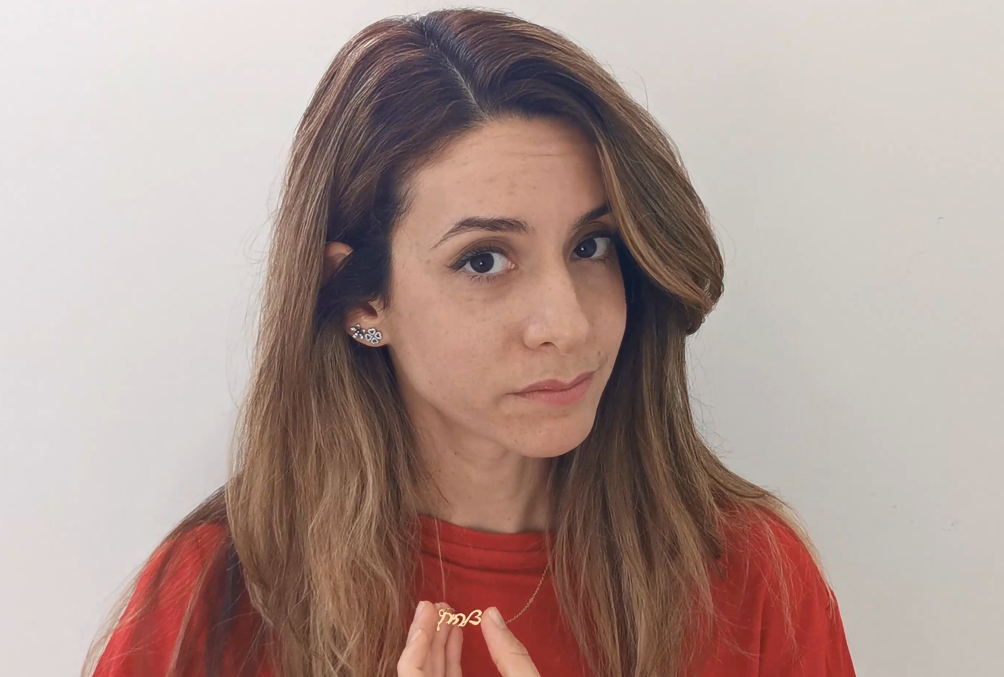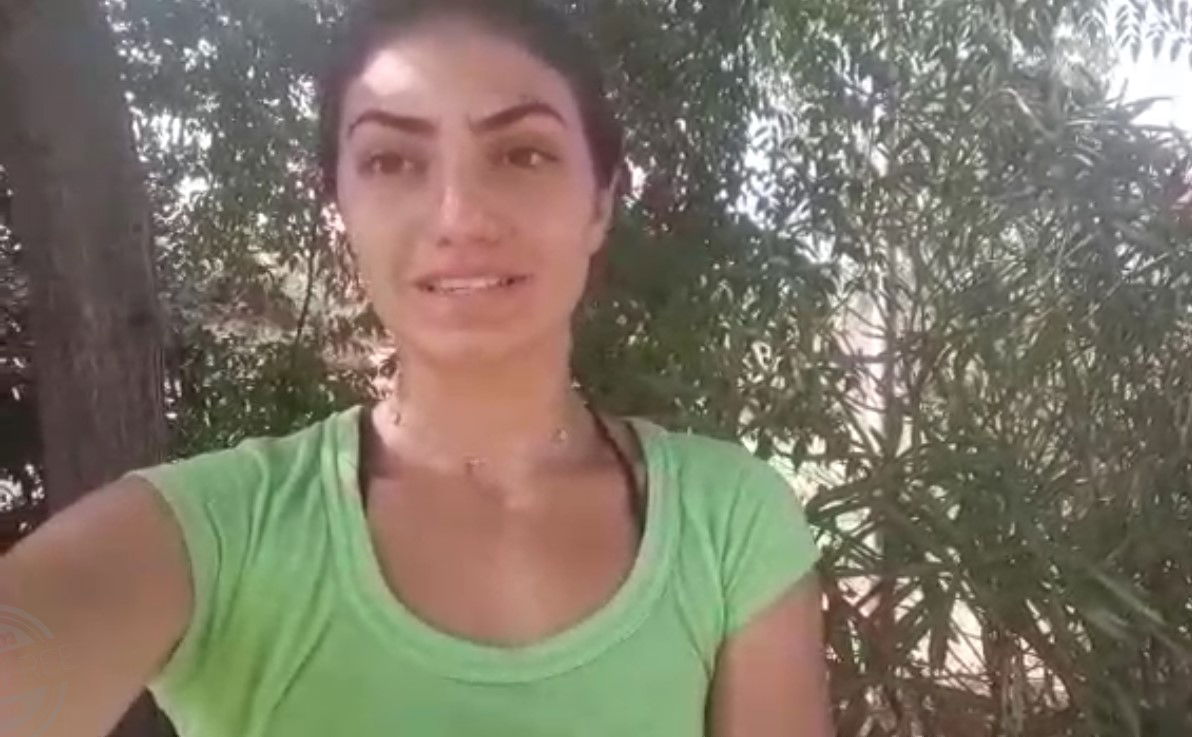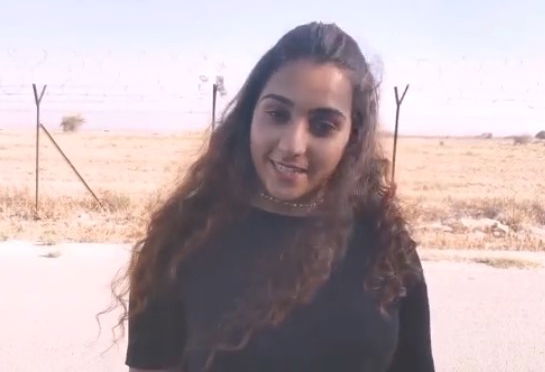English
To Be There for Them
Let's Do It TogetherBeing There for Those Who Have No Place Else
What does a girl do if she has no place to go? Hundreds of girls leave home each year, and the social-service agencies cannot deal with them all. "How can you tell a girl 'I have no room for you' and let her sleep in the street?" The Lehiyot Sham Beshvilam - Being There for Them organization, directed by a couple with backgrounds in education, provides girls with accommodations and emotional assistance, along with a mother figure, mentors and educational activities.
What Does it Mean To be Homeless?
We asked Shira, who's been a mentor here for two years, to tell us a little bit about daily life at Being There for Them. "Not many people know what being homeless is truly all about," she relates. "We have girls here who literally don't have anywhere to go. We need to understand what that means: I can go home for Shabbat; my mother calls me on the phone; I know that someone is concerned about my welfare—these girls don't necessarily have that. It's mind-boggling that there are girls this age who have to sleep in the street." In the course of her work here, Shira has met young women who come here to live and be rehabilitated. "If someone is here, I know she must have a tough background. I never ask them about it directly, but they confide in me when they're ready. Each girl is an entire world, and they're very sensitive." If I were to come here under any other circumstances, I'd think it was an ideal place to live. After all, it seems to have everything one could possibly want: comfortably furnished apartments, social activities and a homey, friendly atmosphere. But the minute you know a little bit of the background story, you understand that this is no ordinary place. The Lehiyot Ulehatzliach organization was established 4 years ago to help young girls from complex backgrounds get back on track. The mentors, always available, offer guidance and assistance in the girls' everyday lives and Esther, the founder of the organization, functions as a mother and a listening ear to the girls.
"What brings the girls here?"
I ask Shira. "The girls come to us after they've run away or been sent away from home and were unable to find other accommodations. It's horrifying to see," she says, near tears, "because I picture each one of these girls as my little sister. I have a sister their age, but while she's doing National Service and having a good time with friends, I'm accompanying a girl her age to a meeting with a social worker. These are things that girls this age shouldn't have to experience—certainly not alone." The girls, age 18-25, receive a bed to sleep in, meals, guidance in their studies or at finding employment, and most importantly of all, a hug and a listening ear. A place that accepts them. "It has happened many times that girls came here and spent weeks eating and sleeping here but just barely communicating with anyone around her. It's hard to understand it until you see it, but just having a home provides a powerful emotional boost and Being There provides a temporary replacement. Something to help them get back on their feet."
How can a girl who has experienced trauma and is essentially homeless—become a functional member of society?
There are approximately 300,000 boys and girls in Israel today who are officially recognized by the Ministry of Social Affairs as "youth at risk." There are roughly 400 organizations assisting young people in this situation, but unfortunately, they are not reaching everyone (based on a 2017 study by the Ministry of Social Affairs.) But there are two things that set Being There apart:
The feeling of hominess, the social cocoon and the enrichment the girls benefit from. The special sensitivity and closeness forms as a result of the personal relationship that enables every girl to get exactly what she needs.
The provision of complete accompaniment until the girl is functioning normally again and considerable improvement has been achieved.
"I'm a big believer in teaching a man to fish rather than giving him a fish," says Esther, founder and leader of Bein There, with a smile. "We give our girls as long as they need to get back to themselves. Our goal is always to enable them to integrate into the fabric of regular society. I can tell you about many girls who came here having barely completed their matriculation exams but who left a year or eighteen months later after having been accepted to study the field of their choice in college or university," she relates like a proud mother. And with good reason: Esther and her husband, Zvi, work 'round-the-clock to maintain and constantly improve Being There.
"I Can't Tell a Girl, 'I Have No Room for You'"
"Sometimes I get a phone call in middle of the night from an unfamiliar number. Often it's someone who found us on the Internet. Even if I don't have any room in the apartment, I know I must help her. Because what will I tell her: 'Sorry, you'll have to sleep in the street tonight?' I could never do that.
"I want to be the girls' first stop,' not their last, because it's so much harder to rehabilitate a girls who's been on the streets for a long time. I see a huge difference between girls who've been on the streets for half a year and those who've been on the streets for two years. It will take so much more time and effort to get her to trust the world again and take responsibility for her life in a positive way. And that's such a shame," she says with a sigh.
"In 2017, we had a girl we'll never forget
"Her name was Neta (not her real name) and she came to us at the age of 19, after running away from home at 17. She hadn't completed twelfth grade nor had she been accepted into the army or National Service—nor had anyone encouraged her to do so. Instead, she'd spent the time in other people's homes, wandering the country and ending up in the most horrific places. She came to us completely lost. I honestly didn’t know where to start, but we arranged for intensive therapy. Half a year later, she'd begun to recover, behaving more pleasantly and showing signs of interest in resuming a normal life. We found her a job in a local clothing store and wanted to continue the process and help her complete her matriculation exams—but at that point her year with us was up. We were forced to continue accompanying her from afar, and that's much harder
"Noa (not her real name), on the other hand, came here a month after leaving home. She didn't need that much rehabilitation and three months later, she left us after having found a job that enabled her to move to a different city in the center of the country
Providing All the Tools for Success
"Have you ever worked as a cashier, a waitress, or a salesperson in a clothing store?" Esther asks
"Yes," I reply, recalling none too fondly my aching feet, my employers' haughty attitude, my delayed paycheck and other unpleasant aspects of the job
"For girls who have a hard time adjusting to a framework, working long hours at a job that pays minimum wage is a difficult test, physically and emotionally. Jobs like these are challenging even for people who come from a solid background, and much more so for a person who is not in a good place emotionally." When the girls cannot pay rent, Esther and Zvi cover for them. The time the girls spend in the apartment serves is a crucially important period of time that has the power to change the course of their lives and bring them back to safe ground. That's why every intervention is of critical importance, and Zvi and Esther have been doing it wholeheartedly for years
"?Need a Warm Home"
"I'm an elementary school teacher by profession. One day, a student I had taught five years earlier called me to ask for help with an emergency situation she was facing. We invited her over, of course. She was the first girl we hosted, but many girls called to ask my advice about various important issues they were dealing with. My husband said, 'Do something with this,' so we thought about how we could expand and spread the word. We took out as mall ad in a Beit Shemesh circular. Looking for a warm home? Call us! And the calls began pouring in… So we rented an apartment for them, and the rest is history. I consider every girl who comes my daughter, and I do everything I can to help her. I believe that's why our track record is so good: when you do something sincerely, with all your heart, it penetrates… When I see a girl leave from here in a better situation than the way she arrived— that means the world to me."
Let's Empathize With Them
Watch Tamar, a mentor, talk about Being There
Ruth, a mentor, tells Danit's story

Bringing About Real Change
"I'm Yael, a volunteer at Being There for Them
I came here a few years ago
but I feel like I've spent an entire lifetime here. The amazing girls I've met here have succeeded in literally turning their lives around
Danit's story made a huge impression on me
Danit arrived here at age 19 after two very difficult years. Her parents are well off, and she always had whatever she wanted—except for one thing: love.
Her parents were deeply immersed in their careers. Danit began to search for a place she could obtain the attention se needed so badly.
At age 17, she took a two-month trip to India. There she encountered a movement that involved the usage of psychedelic drugs. It took six months for her to agree to return to Israel.
The ensuing eighteen months were spent in a blur of drunken confusion. She moved with an unsavory crowd and had no future or direction toward real life
One day, a distant friend who was staying with us told her about the center
She joined my group. We went through a very long and challenging process together, but at the same time, we experienced many wonderful moments and reaped tremendous satisfaction. Danit became a new person. She studied the field of her choice and got a good job
but the real turnaround was completed when she came here half a year ago to be part of our staff
Today, Danit helps girls who find themselves in a situation she knows firsthand. She helps them change, succeed and grow in the best place for them."
We at Being There for Them ask you to empathize with the girls at the center
You now have the opportunity to take part and Be There for Them
Help us make the change that saves lives
Save Our Lives
It was only once I started going to kindergarten that I realized it wasn't like that for the other kids. Their fathers drove them to school and sent them off with smiles and kisses, while I knew only anger and threats from my father. The first time I arrived in school with marks from a beating, I was so ashamed, and I didn't want to go out and play during recess. Slowly, I learned to make up stories to camouflage the truth.
In fourth grade, my grades began failing. I had the worst grades in the whole class. I tried to find an area in which I could be admired, be a somebody. I became friendly with some street kids from my neighborhood. The principal of my school spoke to me, but all attempts to have me stay in school failed. In ninth grade, I was on the streets all day with my gang. We would hang around in utter boredom, looking for something to do. When I was 16, my best friend began working as a courier for a drug dealer. A short while later, I received an offer to work in even sleazier places
I knew I didn't want to "work." There was no way I would sell my body. But the "agent" who had located me began pressuring me and even sending threats my way every few days.
One day, I happened to meet a childhood friend. She succeeded in getting me to confide my situation to her. I cried bitterly. She contacted her older sister, who was a mentor at the incredible Being There for Them organization. Within an hour, they sent a car to pick me up and drive me directly to their center. All at once, I got what I'd been missing all my life: a warm and loving home, support and guidance.
They gave me the rehabilitation I needed in order to start living a normal life. Six months ago, I got my career certificate. Today I'm 21 years old. I have a good job and I support myself. I never forget thanks to who I succeeded in getting where I am today, who helped me change, in the space of a few beautiful years, from a pathetic street wretch to a happy, accomplished young woman
Today I have one request of you
Be there for them. Empathize with them
Give us the Strength to Be There
Ever since I can remember, I had to take care of everything myself. I grew up with a single mother
My mother worked very hard and she had a nervous breakdown when I was very young. I truly grew up on my own. There was very little food at home and no one to buy me clothing. It's hard for me to recall how I looked dressed in old, worn-out clothing. My teacher would sometimes give me clothing that her children had outgrown
There was no one to supervise me. I spent lots of time on the street and became friendly with a group of boys from my neighborhood. We would spend our time looking for stupid stuff to do. Sometimes we did totally illegal things, and sometimes we'd get caught
The third time I got in trouble with the police, I was kicked out of school. no one was there for me to stop me from deteriorating to an even lower level
I was horrified to see that girls like me who were just a year or two older than me were forced to sell their bodies in order to survive. I thought that was the bitter fate that awaited me as well
But then, when I was 18 years old, a distat relative of mine who had come to visit grasped what was going on and called Being There for Them
From that minute on, my story changed completely
I truly became a different person
I started loving real life. I was able to learn and understand
I even acquired a suitable profession thanks to the incredible center
No one who knows me today would recognize me as the girl I was four years ago
As a sign of my appreciation, I appeal to you to empathize with us, the girls dorming at Being There for Them
The place that has helped us all improve our lives, believe in ourselves and succeed
We need your help in order to "be there for them
Watch: Being There for Them on Channel 13
Together, let us help these girls grow and succeed
Thank you for partnering with us
in this crucially important cause
Together, we will help these young women
utilize their incredible potential
and embark on lives of success for themselves and the entire community
Being There for Them
The Being There for Them organization
was established on behalf of young women who require a period of assistance with accommodations and support so that they can achieve a normal, independent life.
The Being There for Them organization is via the Lehiyot Ulehatzliach non-profit organization


